Diet for a Better World
If you're a visitor to Cuba, there seems to be plenty of food around--in good quantity with a nice variety. But you spend your tourist days in a cocoon sealed off, food-wise, from the Cubans themselves. The food we visitors eat in Cuba, served up in hotels, resorts, larger restaurants, etc, comes from a supply system set up only to support the tourists. There's plenty of meat, dairy products, and eggs for the tourist to eat, but the man on the street eats different fare.
After the breakup of the Soviet Union, Cuba entered a "special period" where the food supply system went through its own "revolution". Today, driving through Havana, you'll see what amount to farmers' markets set up in front yards in residential neighborhoods. Fruits and vegetables compatible with Cuba's tropical weather seem to abound, and so do the people crowded around the booths. What you won't see often in these markets is meat of any kind or dairy products. In fact, unlike our grocery stores, these stores have no refrigeration.
For an old vegetarian like me, I ask myself, "What's so bad about that?" Nutritionally speaking, I'd answer, "Not much." But Cubans, like Americans, like their meat, dairy, and eggs and would like to have more of them in their diets.
And yet, what sort of food should a country with strained resources produce for its people? It turns out the best diet is plant-based foods, as study after study has made clear for many decades. Really there are many good reasons why plant-based foods are better for you than animal-based foods.
First, consider that it's just plain more efficient. If you grow 10 calories worth of grain, you have two choices--eat it yourself or feed it to a steer. The steer will give you back one calorie of beef, and that ratio applies roughly to pigs, chickens, goats, etc. So if you have a country full of hungry people looking for enough food to put on the table, you'll reduce hunger ten times as fast growing plant foods for humans to eat.
Second, these days, much of the temperate and some of the tropical regions are drying out, probably due to global warming. Texas is so dry, many can't remember the last time they had a good rain. Yet it takes about 2500 gallons of water to produce a pound of beef--hardly a bargain in a drought. So a diet of less beef and more grain makes a better environment for people--or at least one that uses its available water better.
Third, eating plants instead of animals is much healthier. During WWII, Norway and Denmark still produced food, but much of it was diverted to the Nazi war machine. Facing shortages, the people in those conquered countries made do with more plant-based foods and practically no meat and little dairy and eggs. With a few years of these restrictions, the incidence of heart disease, cancer and stroke began to decline. Today, doctors generally counsel restrictions on saturated fats (a primary harmful component of meat) in the diet. As I write this former President Bill Clinton has just announced he has become a vegan.
So, little meat, dairy and eggs in your diet isn't a bad thing, although modern societies tend to move in the opposite direction. Today Japan is losing its long-held health advantage, coming from little red meat in the diet as they strive toward copying our "Standard American Diet"
Where will Cuba end up as it solves its own food production problems? A word to the wise among Cuba's central planners: There are some good reasons for not trying to duplicate the Standard American Diet.
Les Inglis
Saturday, August 27, 2011
Subscribe to:
Post Comments (Atom)











































































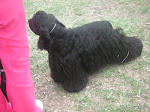
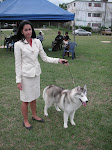


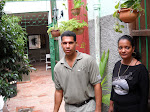





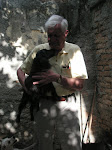





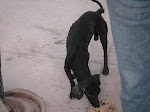


No comments:
Post a Comment